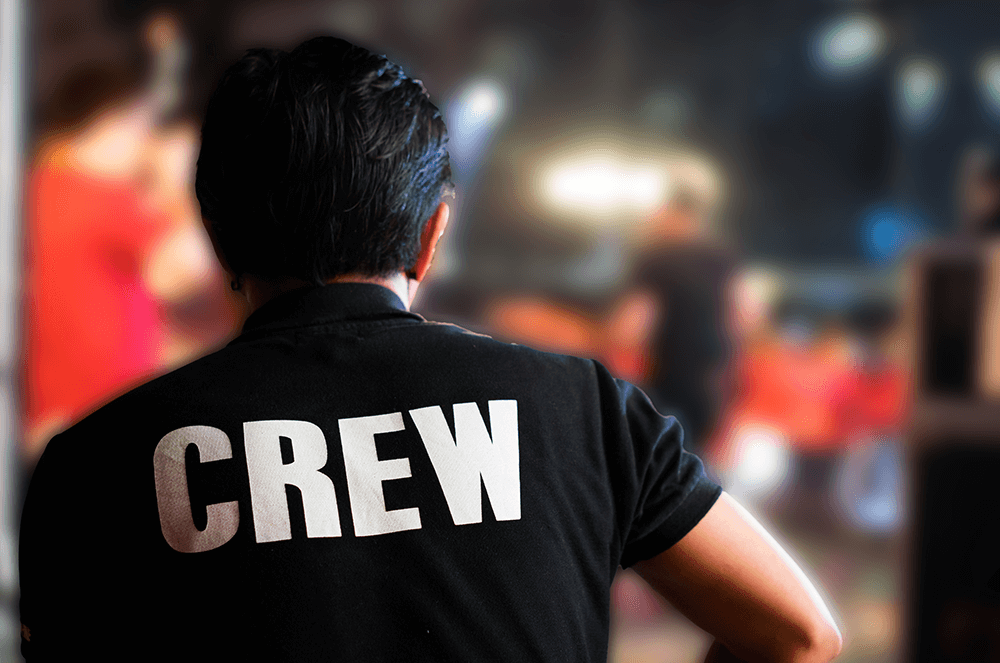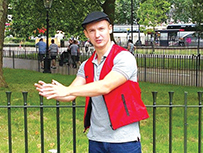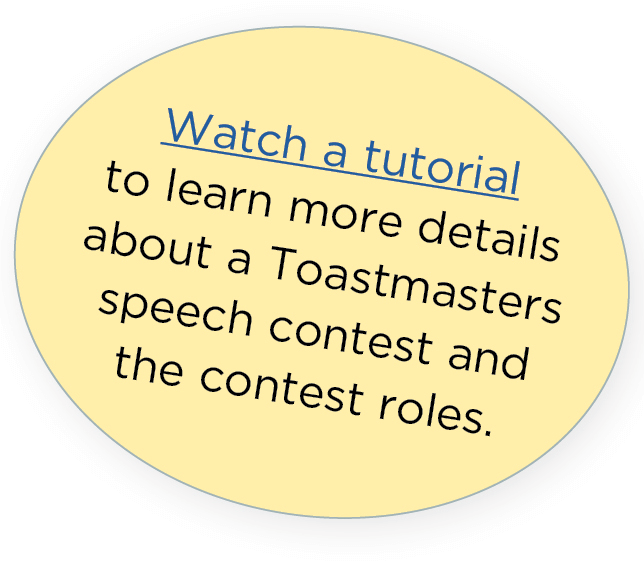
Close your eyes and imagine a Toastmasters club speech contest. Do you immediately picture a speaker, maybe enthusiastic, maybe a little nervous? Perhaps he or she is using wit or an earnest tone to win over anonymous contest judges—all while watching for the dreaded red light.
But did you also picture the people who fill the contest roles, the ones who make the program flow and ensure that it adheres to Toastmasters International’s speech contest rules? That group of 12 people (unless that number is impractical for a club) is essential to the contest. Volunteering to help run a speech contest offers a special opportunity to refine leadership and communications skills—and can amplify the experience of simply being a Toastmaster.
“A lot of times people join Toastmasters and they just go to meeting after meeting and never really get the full concept of how they have grown,” says veteran contest chair Camille Morales, DTM, of the Southwest Project Management Club in Sugar Land, Texas. “Being a functionary, serving in those roles, gives you a broad perspective of what Toastmasters is all about.”
Jason Wang of the Friendly Achievers in Edmonton, Alberta, Canada, says one of the benefits of club contests, whether in a single club or done in tandem with others, is the friendship and collegiality of the activity.
“The amount of connections you need to have is a plus for the club,” he says. “Hosting a club contest strengthens those connections.”
Contest Roles
Depending on your specific interest and desired time commitment, consider taking on one of the roles when your club has its next contest. They include:
Contest Chair/Contest Toastmaster: The contest chair is essentially the event coordinator for a Toastmasters speech contest, overseeing all arrangements including budget, audio-visual and other equipment, publicity, venue, refreshments, and contestant eligibility. The chair also must ensure all roles are filled and the officials are briefed on their responsibilities. The contest chair can form committees to help plan and prepare for various aspects of the contest, but it still falls to the chair to ensure the preparation is done and all goes according to protocol before, during, and after the contest.
According to the Toastmasters Speech Contest Rulebook, the contest chair can also appoint a contest Toastmaster to manage some of these duties—most importantly, running the contest, much as the Toastmaster of the Day at a regular meeting would do.
If you like the challenge of organizing a project, or if you are looking to really improve your leadership skills, contest chair is the job for you. “Contest chair is my favorite speech contest role,” notes Estella Mah, DTM, of the Friendly Achievers Club in Edmonton. “It’s more challenging—and we are in Toastmasters to be challenged.”
Chief Judge: The chief judge appoints the voting judges, ballot counters, timers, and the tiebreaking judge, and briefs them before the contest. This position is also responsible for collecting timers’ record sheets and the ballots.
Voting Judges: The rules call for at least five at the club level, plus a tiebreaking judge. Allowance is made for clubs too small to produce five judges, although judges can be recruited from other clubs. Judges must be anonymous, although the chief judge, because that role does not include judging contestants, is not.
If you enjoy exercising analytical skills, chief judge or voting judge is the position for you. As Mary Robson, DTM, a member of several clubs in Oxford, England, says, “I enjoy the chief judge position the most—you get to lead, learn increased communication skills, and lead the contest judges.”
Two timers and two ballot counters round out the club contest roles. These have their own distinct, important spots in the lineup. Learn the details of these roles in the Speech Contest Rulebook.
Planning and Promoting
Promoting your speech contest is vital. You want club members aware of the contest well ahead of time to allow for more participants in the competition and in roles.
Robson’s club uses announcements during meetings and in Facebook posts, WhatsApp groups, group email, Meetup groups, and word of mouth.
The million-dollar question: What does it take to entice people to participate?
“Lots of notice and encouragement,” says Robson. “Promoting the benefits of and the satisfaction and fun you get from competing, and how it improves your speech development and speech presentation skills.”
“I enjoy the chief judge position the most—you get to lead, learn increased communication skills, and lead the contest judges.”
—Mary Robson, DTMZenia Shipp, DTM, Public Relations Manager for District 56 and a member of the Master Evaluators in Houston, Texas, is a veteran club contest organizer. When clubs team up to hold their contests together, she says, it’s a great way to get people involved and make contests run smoothly.
She also recommends that contest chairs reach out to their Area Directors for assistance with organizing and recruiting.
Ask any successful club contest organizer and you’ll hear a few things over and over:
- Spend the time to train functionaries. Review every role and make sure the team understands each role. Consider that time to be an investment in your club contest’s success.
- Emphasize teamwork.
- Have all your contest-related paperwork ready before the contest begins. For an online contest, make sure systems are in place for submitting and sharing required documents such as judging forms, ballot-counting sheets, and timer instructions. A range of apps can be used, including Google Forms and WhatsApp.
The Online Element
In March 2020, plenty of Toastmasters meetings went online—which meant that as long as in-person meetings were not permitted or not feasible, speech contests were done online as well, presenting a whole new set of challenges. Fortunately, Toastmasters International produced a resource to help: Online Speech Contest Best Practices. These guidelines (they’re not rules) address in detail how to manage common online issues, such as specific cues to signal a transition from one portion of the contest to the next. An example: instructing contestants to turn on their mic and camera and say “ready” to confirm their equipment is working. (The contest chair also has to ensure the timers know that “ready” is not the start of the speech!)
Have a Great Club Contest
Club contests require diligent work, but with help and experience, they can be arranged with ease. Of course, the first step is to review the very comprehensive Speech Contest Rulebook. There’s no sense in planning a great event only to find out part of your planned activity is in violation of a contest rule.
Toastmasters International provides resources to help clubs maximize success, including club contest kits, an in-depth FAQ on the Toastmasters website, and the best practices guide for online contests mentioned earlier. However, good planning, including back-up plans for every role or phase of the event, is a must to overcome or mitigate any glitches.
That is the principle by which Morales, the veteran contest chair, plans speech contests. She says a successful club contest is all about planning and teamwork.
“Teamwork is the main thing,” she says. “We know we’re part of an organization that’s teaching communication and leadership skills.”
Robson, the Toastmaster from England, agrees with that sentiment, saying every role has value. “Even vote counter—you are part of it,” she says.
Hear, hear!
Ruth Nasrullah is a freelance journalist based in Houston. She joined Toastmasters in 2006 and since then has belonged to several clubs in the greater Houston area. Visit ruthnasrullah.com to learn more about her and her writing.
Related Articles

Presentation Skills
How to Run a Club Speech Contest

Communication
The True Value of Speech Contests

Personal Growth



 Previous
Previous


 Previous Article
Previous Article